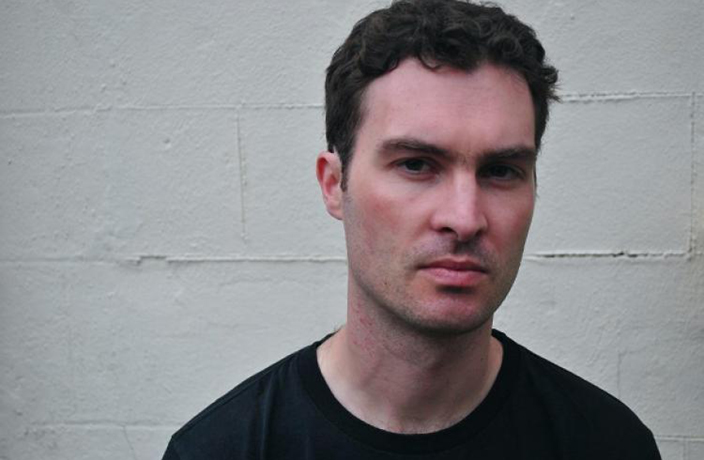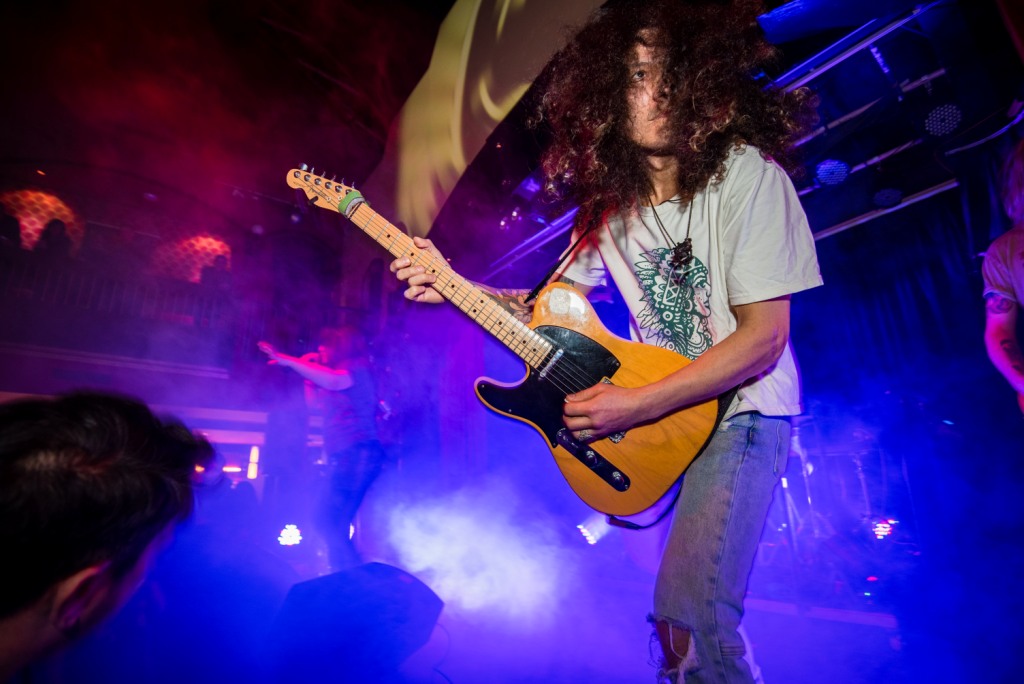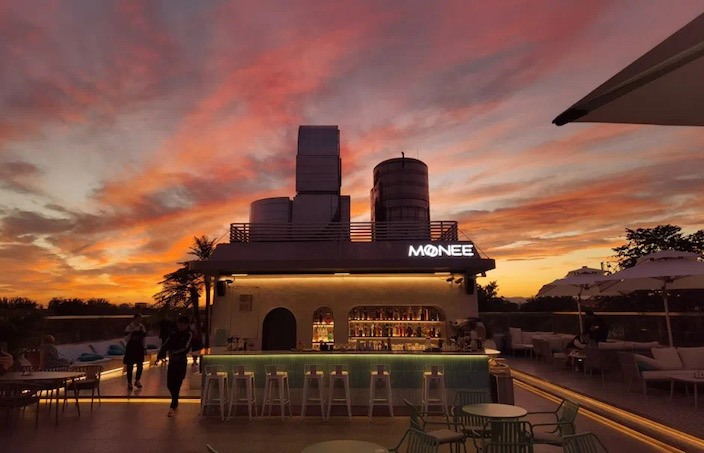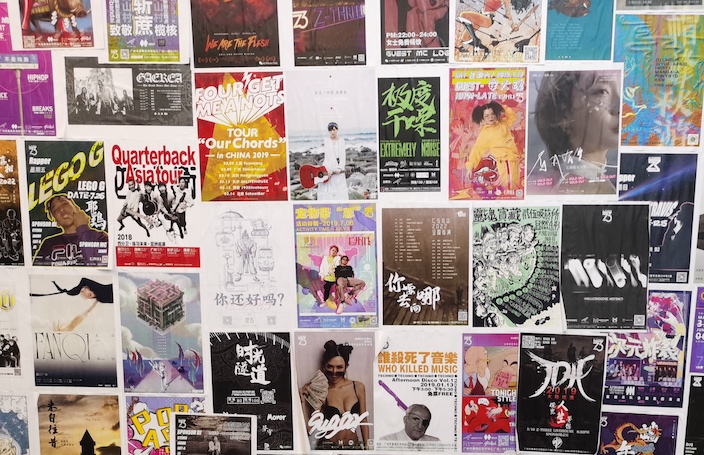British DJ and producer Peverelist made his mark on the UK's early dubstep scene with 'Roll With the Punches,' one of the genre's most celebrated tracks. He has since stayed one step ahead of the zeitgeist, pushing bass-heavy sounds through his own productions and his label Livity Sound. We caught up with Pev ahead of his show with longtime collaborator Kowton at Dada.
Fact and Spin magazines both named 'Roll With the Punches' in their "most important dubstep tracks" lists. It feels like one of only a handful of songs on those lists that has aged really well. Why do you think that is?
That's nice of them. It wasn't really picked up by the big DJs at the time. I think it got popular via radio and grassroots, bedroom DJs and dubstep heads. So maybe that gave it a bit of longevity, more of an underdog underground hit than a rave anthem. A lot of the tunes that I feel were important from that era are overlooked now because they only really made sense within the context of those specific dances: DMZ, Subloaded or FWD. I know it’s a cliché, but you had to be there.
When you put in that bass drop did you know that you had something special on your hands?
I can't remember what I was thinking when I made it other than wanting to recreate the vibe I found going to the early DMZ dances in London. I probably didn't build the tune in the order you mention. I imagine I made the drums and the bass first and then built the melodies around it. So no, there probably wasn't a 'eureka' moment. The sequencing of the tune is what gives it impact, I think. Maybe it clicked when I realized that was a good way of arranging it.
Which elements of dubstep do you think have stood the test of time? Which threads can be traced all the way through to some of the music being made now?
The most important element of dubstep for me was the realization that you can have the confidence to do your own thing, build your own sound and be accepted. It was a very open-minded time for a short while. Then it consolidated into a defined dubstep sound, and the creativity was locked out. That's when a lot of people started to disassociate with it. It’s not an unfamiliar story, but it was really exciting for those first two years (2004-2005).
Do you still listen to any tracks from that era?
Not really. I haven't got enough distance on it yet. I’m still fond of it though and I occasionally play the odd track in the sets.
Do you think it's just a matter of time before there's a dubstep 'revival' in the way that garage enjoyed its recent 'revival’? When will nostalgia begin to replace the latent resentment that seems to exist toward the genre?
The scene is pretty strong in the UK at the moment – a whole new generation of young people who are excited by it but were too young at the time to experience it. I really hope they don't get locked into a nostalgia trap and try to remake the past, and instead take on the original manifesto of dubstep to be creative, innovate and be original.
You've been pretty dedicated to using vinyl rather than CDs or digital mixing software. How does that work out on tours like this? Will you be bringing vinyl to China?
I've been collecting records for a long, long time. Working in a record shop for 10 years you end up bringing home a lot of vinyl. Like a kid in a sweet shop, it all adds up. I play more from a USB stick at the moment though. I still like buying records, but from a DJing point of view I need to have more options than just having the records I can carry. The kind of sets I am playing at the moment can be very varied, and I usually don't decide what I'm going to play until I get to the club and get a vibe from the people there. USBs give you a breadth of options which has helped me play longer, more varied and – I think – better sets.
You worked at Rooted Records for years. How important was it to what was happening in Bristol at the time? And how important was the store in shaping your musical identity?
It was everything to me, my entire world – I lived and breathed it. I met so many people through working there and learned about the independent music industry, labels, distributers – all invaluable. I was a music head before I started working there, but I definitely gained a deeper knowledge of music. As far as importance to Bristol, I think that grew as time went on. When Rooted opened there must have been 20 record shops in Bristol, but by the time it closed there were just a couple doing new releases. So we kept the flag-flying for new music for a while. I was pushing a lot of the new music coming out of London – early grime and dubstep – right from when I started in 2000, and we certainly became a hub for that sound in Bristol as it developed and gained an international reputation. I started my label Punch Drunk while working at the shop which was dedicated to Bristol's response to those sounds. When the shop closed in 2010 I think it was really at its height... certainly the best shop in the Southwest, maybe one of the top shops in the country.
How has Bristol's role in the wider UK electronic scene changed since its dubstep days?
It’s hard for me to say. When you're living in a city it’s hard to know how it’s perceived from the outside. I think it has certainly re-cemented itself as one of the top cities in the UK for music. Lots of young people move here just to be involved in the music scene… just like I did back in 1997.
For our readers who aren't from the UK (most of them!), can you explain a bit about the sounds coming out of Bristol right now?
From an electronic music perspective, there is the kind of sound that [my label] Livity Sound does, which could be loosely defined as broken techno with sound system influences. Batu's label Timedance is on a similar trip. There's the Idle Hands label which is more house orientated and runs out of the Idle Hands record shop in the city. There is more grime-orientated labels such as Kahn & Neek's Bandulu for instance, Roots Reggae via Dubkasm's Sufferer's Choice label, experimental Drum n' Bass from artists such as Sam Binga and Pessimist. So many more too. It’s a very musically diverse city.
Kowton's album Utility was the first solo full-length to be released on Livity Sound. Is it a sign of how far the label has come?
I hope so. We wanted take things to the next step and start working on some bigger projects. It felt like the right time, and I think it has helped established the label further. We'll do more this year so keep your eyes peeled.
We're big fans of the Dali-esque artwork on many of Livity's records [see art for 'Undulate/Grit' above]. Can you tell us a bit about it? Where does the inspiration come from?
I'm glad you like it! It's by an illustrator called Tess Redburn. You can find out more here.
You've spoken about Livity being more about your own interests and ideas, while Punch Drunk was more of a platform for Bristol artists. Then you've got another label, Dnuos ytiviL, as well. Would it have been impossible to reconcile all of those aims into one label?
It seems excessive, doesn't it? It does all make sense to me. I guess the best way to answer that is firstly to say that Livity Sound and dnuoS ytiviL are the same label to me. Originally Livity Sound was just myself, Kowton and Asusu, but last year I decided to broaden our roster to help the label develop and prevent us from repeating ourselves. So as time goes on the aims of the label evolve. The reverse label was meant as a way of working with producers that I have an affinity with, but I think the two labels are slowly merging into one. Punch Drunk was a label with a very defined remit, to act as a platform for Bristol artists. That allowed the label to have a very diverse sound, which made it interesting and exciting. But by the time Rooted had closed I felt the need to specifically pursue my own interests, and Livity Sound was the vehicle I created with Kowton to work toward achieving that.
Sat Feb 11; Dada, see event listing.






















0 User Comments